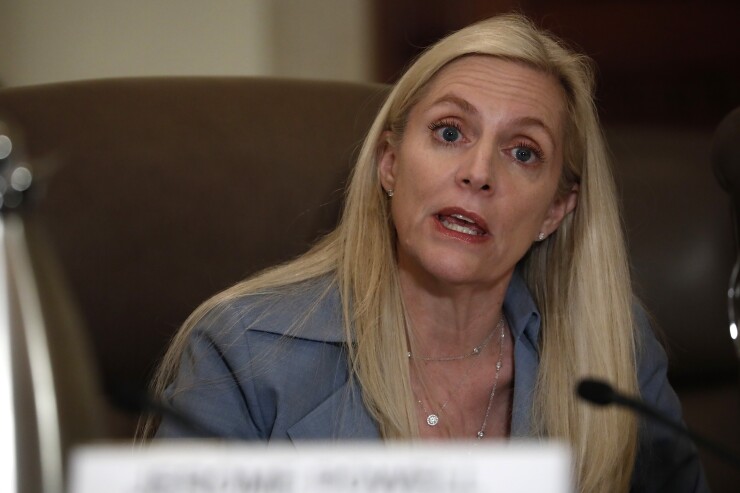A Federal Reserve governor on Wednesday issued a rebuke of several key elements of a new proposal to overhaul enforcement of the Community Reinvestment Act, though she stopped short of criticizing its authors — the Federal Deposit Insurance Corp. and the Office of the Comptroller of the Currency — by name.
Overall, Fed Gov. Lael Brainard suggested regulators need to take their time in revamping CRA and not rush into changes without proper analysis.
"If the past is any guide, major updates to the CRA regulations happen once every few decades. So it is much more important to get reform right than to do it quickly," she said in a speech at the Urban Institute.

Brainard’s remarks constitute the first substantial comment from the Federal Reserve since the central bank chose not to join the FDIC and OCC in their joint notice of proposed rulemaking in December. The Fed's unwillingness to sign on has raised the prospect of divided enforcement of CRA, in which banks are examined differently on the same law depending on what charter they have.
Brainard said again on Wednesday that the Fed hopes to reach consensus, while at the same time not sounding optimistic it will be reached soon. She emphasized that regulators have some of the same goals in reforming the CRA, including the continued importance of physical branch locations and the need for clearer scoring guidelines.
"It's important to eventually find common ground and have one interagency rule. ... But I think we want to make sure that any rulemaking we do, we feel really confident about that rulemaking furthering the core purposes of the statute," she said.
Brainard proceeded to object to most of the key elements of the FDIC and OCC's plan. For example, their proposal would combine several aspects of CRA evaluation into a single, final score based in part on dollar value. But Brainard suggested such a move was a mistake.
“Dividing evaluations into separate retail and community development tests is important,” Brainard said. “In contrast, an approach that combines all activity together runs the risk of encouraging some institutions to meet expectations primarily through a few large community development loans or investments rather than meeting local needs.”
Brainard added that a uniform ratio for determining CRA evaluations that “does not adjust with the local business cycle could provide too little incentive to make good loans during an expansion and incentives to make unsound loans during a downturn, which could be inconsistent with the safe and sound practices mandated by the CRA statute."
Additionally, Brainard took issue with the proposal's emphasis on dollar value in scoring CRA compliance, arguing instead it should rely on volume.
Citing Fed analysis, she said "the value of retail services and community development services to a local community do not lend themselves easily to a monetary value metric comparable to the monetary value of loans and investments.”
“The value of these services may vary greatly from community to community. It is difficult to monetize this value in a consistent way relative to the value of lending and investment, thus introducing the risk of skewing incentives inadvertently,” Brainard said.
In her speech, Brainard also said that the proposal should allow the public “sufficient time” for comment — a remark that appeared to highlight concerns by some that the




